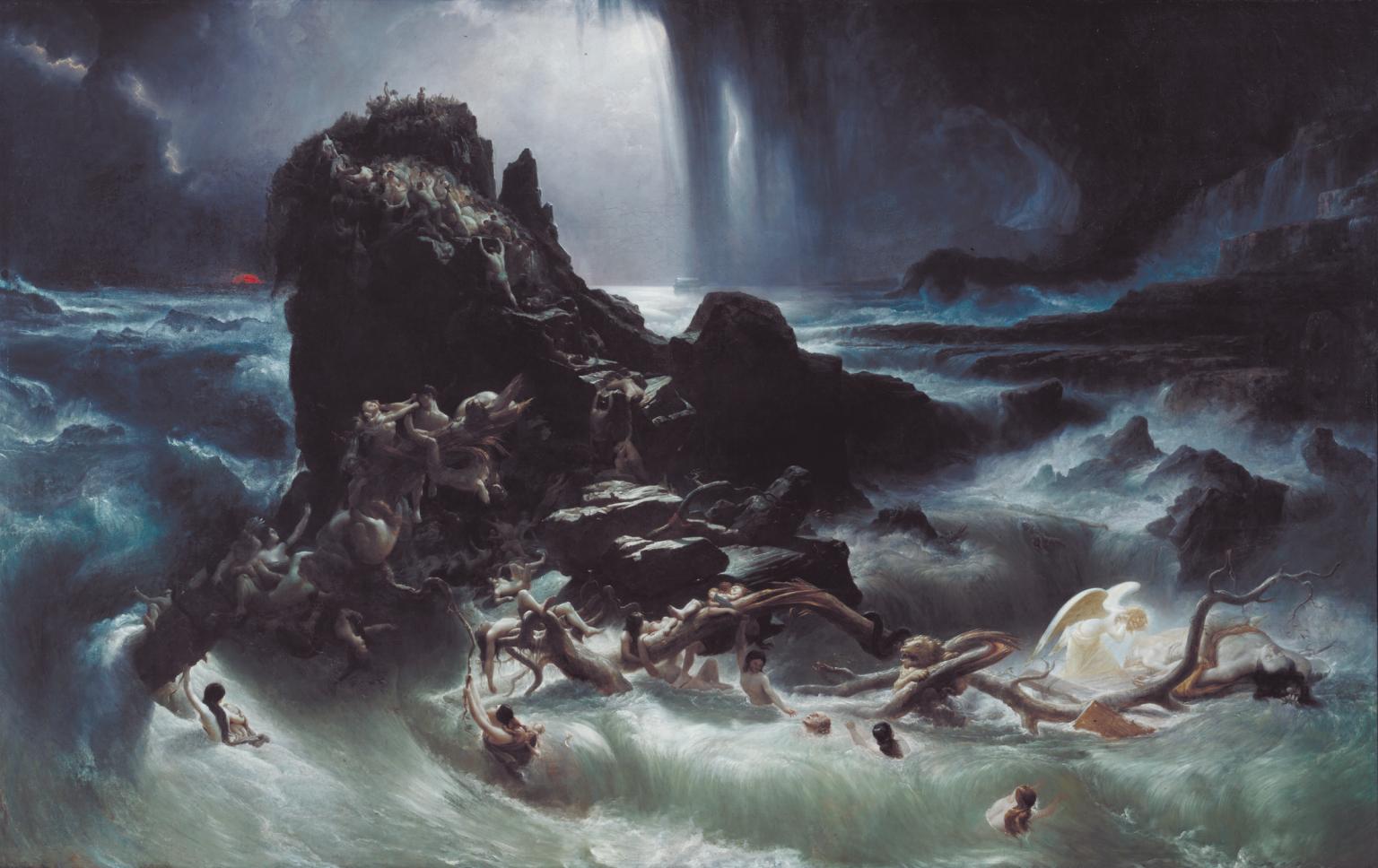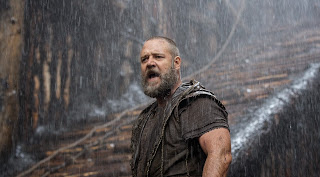Marginal Noah's Ark cartoons
I recently posted a list of 'all' the screen productions to adapt the story of Noah and the flood. As ever with these things you soon remember how impossible it is to list them 'all': there are just too many. With a story as popular as this there are always brief fantasy sequences where lead characters imagine themselves as Noah, or something that someone has just created for YouTube (how many views of an original Noah adaptation make it a worthy production in itself).
Anyway, as part of that process I went back on forth several times on a handful of films that all landed somewhere around the cut-off line, and, seeing as I'm wanting to post some brief thoughts about some of the Noah / flood / Ark films I've watched recently, I thought I'd start with these, particularly as the first two go back to the 1920s.
Amateur Night on the Ark (1923)
Between 1921 and 1929 American animation pioneer Paul Terry produces a series of over 450 cartoons called Aesop's Fables Cartoons, the earliest of which, such as The Cat and the Canary (1922) were more closely related to Aesop than Amateur Night on the Ark. Terry had started out at Thanhouser animating a character called Farmer Alfa, and when he left them in 1917 to set out on his own he brought his "star" Alfa with him.
The Alfa character a bald older man with a white beard, featured in many of Terry's silent animations and here he appears as the sole human aboard a steamboat called "Ark" which aside from the chimney emit smoke as it powers the boat forward, otherwise resembles Noah's Ark (see above). But he's never identified as Noah, and his role doesn't really correspond to the biblical character. The Amateur Night" is a variety show which families of animals (certainly not just pairs) turn up for, and Alfa is takes the door money. Later he appears on stage, but is chased off stage when a box match he is performing in is exposed as a fake.
Really, then, Terry's black and white cartoon uses aspects of the Noah story, the shape of the boat, the look of the character, the exotic animals, in a more modern context, with a certain amount of anthropomorphising of the animals. However, aside from the use of the word “Ark” and the presence of animals and an older man, Amateur Night has little to do with the flood story, other than cultural resonance, so I might not qualify it at all as a Noah film, but for it's similarities with...
Availability: YouTube.
Noah's Lark (1929)
As with the above, Noah's Lark, directed by Dave Fleischer, starts off as recognisably as a modern-twist on the biblical tale. Noah is portrayed as a modern-era sailor replete with an anchor tattoo on his forearm and accompanied by The Sailor's Hornpipe. If that all sounds a little reminiscent of a certain spinach-chumping sea-farer then you won't be surprised to know that it was Dave Fleischer's big brother Max who adapted the Popeye comic strip for the screen in 1933 (the comic strip began in 1929 as well).
As with Amateur Night the original biblical premise, a bunch of animals stuck on a boat captained by a human, is merely a leaping off point for Fleischer's flights of fancy and artistic imagination. Here it spins it off far beyond the typical edges of what that usually entails, as the animals -- who here seem more of a crew -- arrive on land to a fairground and get involved in all kinds of antics and visual jokes (a monkey plucking a tiger's stripes as bass notes in the soundtrack being a particularly good gag given this cartoon was from the early months of the talkie era).
So again the links to the biblical story are fairly tangential, but the use of the song "The animals came in Two by Two" over the opening credits, the explicit reference to Noah in the title, and the pun on Ark, the fear of the (flood) waters and perhaps just the sense of their joy/relief when they arrive on land once again tip their hat just a little more in that direction than the previous film.
Availability YouTube.
Yogi’s Ark Lark (1972)
As with the above films, Yogi's Ark Lark has little to do with the flood story, other than cultural resonances. Again the boat in question is called “Noah’s Ark” and their are animals (Yogi Bear and a host of his other, early 1970s Hanna Barbera cartoon colleagues) and an older man who is named Noah. Essentially Yogi and friends get together and share their worries about the state of their home environments, such as their homes are being destroyed by litter and over-population and so decide to leave it all behind on an ark and head off in search of "the perfect place" (a phrase that becomes the title of a song that is used regularly throughout the show).
What was interesting for me was how the complaints about the state of the world were far more soft-right than you would get on this kind of show today making a host of usually fairly wacky characters seem rather old in yearning for a lost past they (presumably) ever experienced. Moreover, ultimately , they decide on a rather ‘Big Society’ solution of sorting out those issues themselves, with Top Cat and Lenny, for example, deciding not only to clean up their alley, but their entire city.
It all makes for pretty dull entertainment. Jokes are thin on the ground, with even the moments of slapstick falling short (actually if anyone had literally fallen short of something, it might have been the funniest thing in the programme) and the Noah parallels are extremely thin indeed. The Noah character really only feels like he's been brought on board [wink] to make the catchy title stick.
Availablity: archive.org.
Animaniacs: Noah’s Lark (1993)
The Animaniacs take on the flood story comes in episode 33 Cartoons in Wakko's Body where it sits alongside two other stories The Big Kiss and Hiccup. I'm not overly familiar with Animaniacs, so my comments will probably seem a bit odd to those who know the show, but essentially this is a kids-focussed cartoon, although very much with a few adult jokes smuggled in for the benefit of any adults watching. The New York comic style of deadpan humour is particularly to the fore, not least in Noah’s detached cynicism. Other jokes include some late-to-the-party, yet snobby, hippos and Noah’s fear of spiders.
Jokes aside this one sticks fairly closely to the plot. It's certainly far more recognisably a Noah story than the three episodes above. Interestingly, Noah (pictured above) is a lot younger here with dark hair and no beard. He also likes playing with one of those table tennis bats with the ball attached to it with a bit of elastic. While I'd have to consult with an archaeologist to be sure, I don't think those are in the Bible...
Availability: The only place I found this online gave me PC issues.




















%20inside%20ark.jpg)









